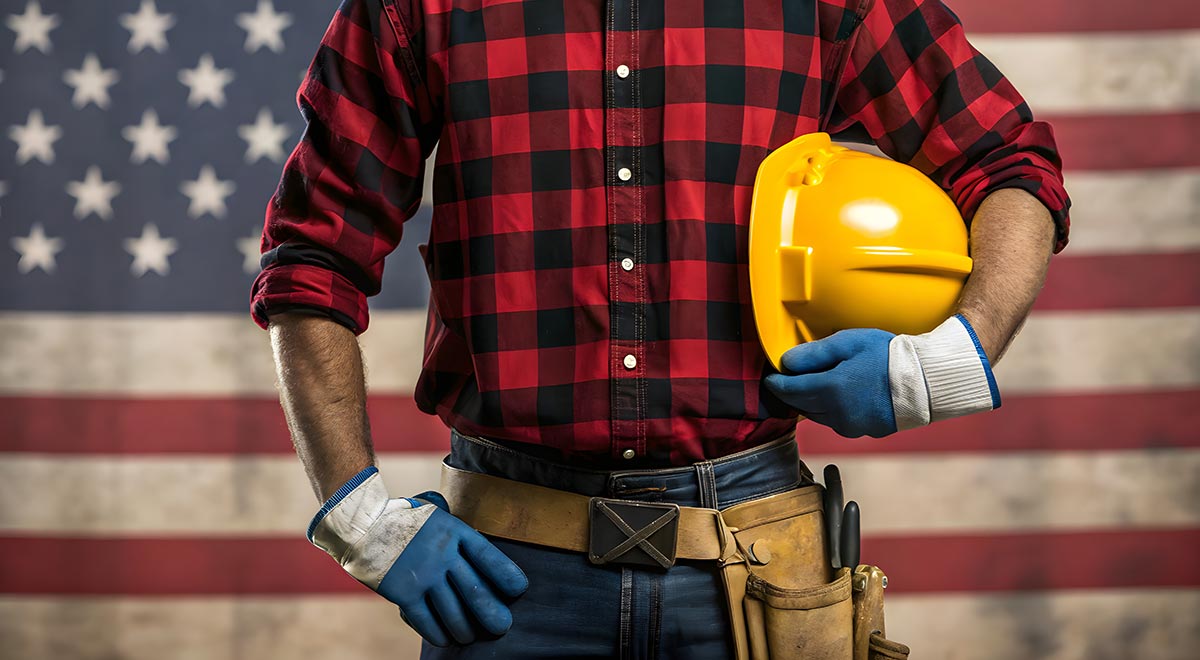The Men in Oil-Stained Boots
I grew up around men whose hands told the truth before their mouths ever did. They had busted knuckles and dirt under their nails. They carried the scent of machine shops, diesel, sawdust, and sweat. They wore uniforms with names stitched on their chests — Frank, Tony, Lou — and they clocked in before sunrise, worked through pain, and came home with their backs aching and their dignity intact.
These were the men who built the America I grew up in. My father was one of them. So were my uncles, our neighbors, the dads of my classmates. They were mechanics, electricians, factory workers, carpenters, delivery drivers. They didn’t chase status. They chased stability. They didn’t talk much about pride, but you could see it in the way they cleaned their tools.
We didn’t call them “blue collar” back then. We just called them family.
The America They Built
This version of America — the working-class neighborhoods with modest homes, corner bars, and union halls — is fading. And with it, the people who held it together.
The men and women who carried lunch pails, who knew how to fix a broken engine or lay a roof in the middle of August, who never took a sick day because missing a shift meant missing rent — they’re disappearing. Not because they’ve gone anywhere, but because the country they built stopped seeing them.
We erased them from the movies. We cut them out of the conversation. We celebrated billionaires and tech geniuses and forgot the people who still deliver our packages and keep our lights on. Somewhere along the way, “working with your hands” became something to escape rather than something to respect.
The Kitchen Table Economy
In our house, money was always a conversation, never a guarantee. I remember my parents huddled over the kitchen table late at night, sorting through bills, stretching every dollar like it had weight. My father worked in construction. My mother cleaned houses. There was no salary, no cushion, just the promise that if you worked hard enough, you’d be okay.
That promise — the American Dream — was fragile even then. But they believed in it. They passed it down like a family heirloom. And so we, their kids, believed in it too.
We were told to aim higher — to go to college, wear a tie, sit at a desk, get a job that didn’t leave you sore at the end of the day. It was good advice. But in climbing, I’ve never forgotten the ground I came from.
The Silence They Carried
What strikes me most now, looking back, is how quiet these men were. Not emotionally distant — just not given to speeches or self-pity. If something was broken, you fixed it. If you were tired, you kept going. If you were angry, you kept it to yourself and turned the wrench harder.
They didn’t go to therapy. They didn’t talk about identity. They didn’t have the language of feelings. But they had a code — show up, do the job, protect your own. That code didn’t come from a book. It came from watching their fathers do the same.
Now, I wonder what that silence cost them. What it buried. What it passed down. Because while that stoicism carried strength, it also carried pain — pain that often had no place to go.
What We Owe Them
It’s easy to romanticize the past. I’m not doing that. Life was hard. Wages were low. Healthcare was spotty. Many of these men were broken by the very work they devoted themselves to.
But there was honor in it. And community. And pride.
Today, we measure success by visibility. If people know your name, you’ve made it. But the working-class world I grew up in was full of people whose names will never be known — and yet they mattered. They mattered deeply.
We owe them more than nostalgia. We owe them attention. We owe them policies that protect their labor, wages that reflect their value, and a culture that remembers who kept the lights on while the rest of us chased the spotlight.
Remembering, Not Replacing
My father passed away a few years ago. I still have his old flannel jacket. I keep it folded in my closet, even though I rarely wear it. Sometimes, I slip my hand into the pocket and find a washer or a nail — a small reminder of the life he lived, the work he did, the world that shaped me.
Writing about these men isn’t about turning back the clock. It’s about making sure their stories don’t vanish with them. It’s about holding space for the people who held the line while others pushed forward.
It’s about saying: You mattered. You built something real. You still do.
Carrying the Legacy
I live a quiet life now — writing, hiking, reading. I no longer work with my hands the way my father did. But every sentence I write feels built on the foundation he laid — not just in what he did, but in what he taught me: Show up. Do the work. Don’t quit just because it’s hard.
In a country that moves fast and forgets easily, remembering the working class is an act of resistance. It’s a way of saying that dignity doesn’t come from a title — it comes from effort. From presence. From doing what needs to be done, even when no one’s watching.
These men — these blue collar ghosts — still live in our stories, our habits, our values. And maybe, if we listen closely enough, we’ll hear them again. In the hum of an engine. In the swing of a hammer. In the quiet strength of doing what’s right — even when no one claps for it.
